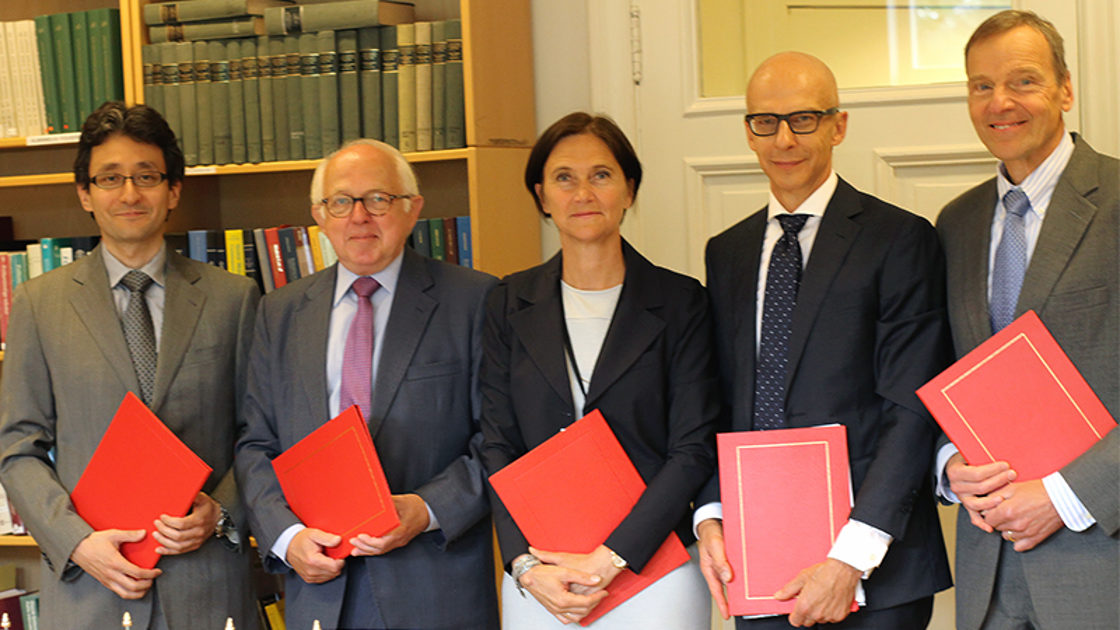Coastal states decide on measures to combat unregulated fishing in the Arctic Ocean
Historical archive
Published under: Solberg's Government
Publisher: Ministry of Foreign Affairs
News story | Date: 16/07/2015
Norway and the other coastal states to the central Arctic Ocean, Canada, Denmark, Russia and the US, have signed a declaration on research cooperation and measures to combat unregulated fishing in the international part of the central Arctic Ocean.

‘Climate change is affecting the migration patterns of fish stocks. Norway and the other coastal states to the central Arctic Ocean have a particular responsibility under the law of the sea to follow developments in the central Arctic Ocean closely. The decision of the coastal states to cooperate on research to better understand these developments, as set out in the declaration signed today, is important,’ commented Minister of Foreign Affairs Børge Brende.
The five coastal states will prohibit fishermen from their countries from fishing in the international part of the central Arctic Ocean.
‘Norway has already prohibited its fishermen from fishing in unregulated international waters, but it is important that the other states bordering the central Arctic Ocean are now doing the same,’ said Minister of Fisheries Elisabeth Aspaker.
Commercial fishing in the international part of the central Arctic Ocean is unlikely in the near future, so there is no need to establish new management regimes at present. However, developments must be followed closely, and the coastal states have therefore agreed to cooperate on research.
On the basis of today’s declaration, the coastal states will try to persuade other countries to refrain from unregulated fishing in the central Arctic Ocean.
‘Effective protection of the fish stocks in the central Arctic Ocean requires cooperation between the coastal states and other interested states. It is therefore important that the coastal states seek to engage other states in this effort, with a view to preventing unregulated fishing in the future,’ said Mr Brende.
- Declaration on Arctic Fisheries 16 July 2015 (pdf)
- Text to accompany Declaration on Arctic Fisheries 16 July 2015 (pdf)